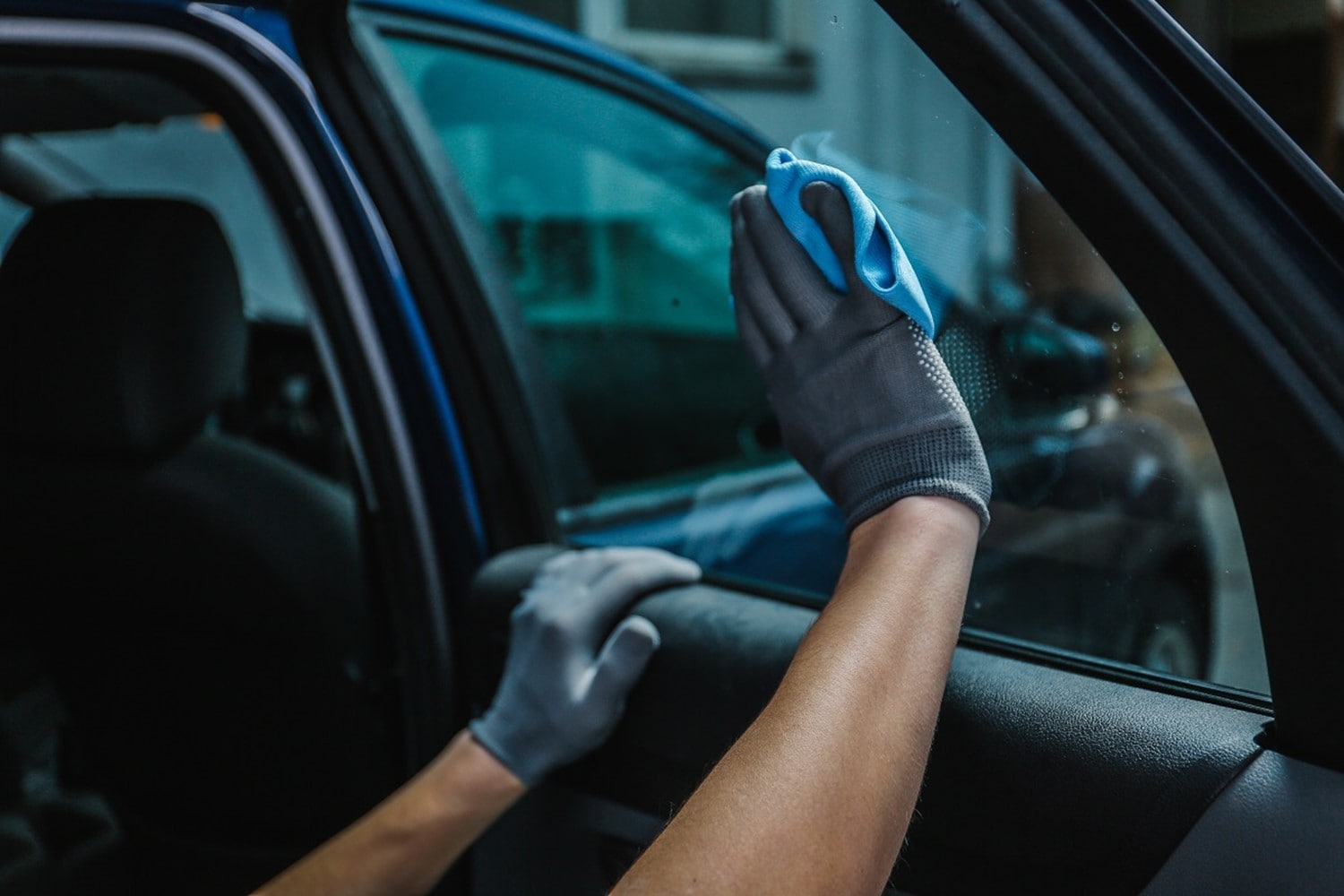

Night blindness. Blurred vision. Floaters or halos around lights. No, your eyes aren’t playing tricks on you – they’re warning you to be extra cautious behind the wheel, because your vision isn't necessarily on your side.
Nearly 1 in 3 Americans suffer from or are affected by astigmatism, making it the most common eye problem in the country. (Half of the country has some sort of vision problem.) Since we're only a luxury car dealer in Miami, not eye doctors, we'll spare you the science behind astigmatism. In laymen's terms, light refracts differently through the corneas of people with this eye disorder, which can cause several vision issues, such as:
- Impaired night vision (worsened when rainy)
- Severe night blindness
- Halos and floaters around lights
- Blinding glare from headlights
- Streaks caused by moving lights
- Squinting improves eyesight or reduces light sensitivity
- Headaches
- Eyestrain
- Difficulty focusing
- Poor depth perception, especially in low-light environments (dusk and dawn)
- Distorted vision
- Fuzzy images
Driving at night with astigmatism is a challenge, to say the least. Anything from traffic lights to a cacophony of car headlights can cause glares, blurry images, or even a total inability to see the road, other vehicles, street signs, and cyclists and pedestrians. It's like living within a J.J. Abrams movie.
Here's a side-by-side image of what the world might looks like for a "normal" pair of eyes (left side) compared to eyes with astigmatism (right side):

10 Tips for Driving with Astigmatism
1. Get an Eye Exam
First and foremost, you should be getting your eyes checked by a doctor annually. If you have astigmatism and notice that nighttime driving has increasingly become more difficult, speak with your doctor about those vision changes. They may be able to offer you various potential solutions, which may include surgeries, prescription eyedrops, therapies, and/or special corrective glasses and Orthokeratology or Toric contacts.Terrifyingly, up to ~20% of drivers who have bad vision operate vehicles without being treated by an optometrist or wearing their prescribed eyeglasses or contact lenses. Don’t add fuel to the fire; if you are experiencing any of the following problems with your eyesight when driving, make an appointment with your doctor for an eye exam.
- Signs of astigmatism
- Inability to adjust to changing brightness levels (light sensitivity)
- Eye straining or fatigue
- Dry eyes that may appear red or feel itchy
- Eye watering
- Gradual or sudden decrease in field of vision
- Dark spots
- Floaters
- “Curtains” across your field of view
- Difficulty reading signs
- Double vision
2. Wear Glasses with Non-Glare Coating
If you wear eyeglasses when driving at night, you should consider upgrading to a pair with non-glare coating. This special lens coating reduces the amount of light that enters the cornea, which ultimately helps prevent blinding halos and streaks of light.But be cautious of "Night Driving Glasses"! Advertised as a potential cure for night blindness caused by astigmatism, yellow-tinted night driving glasses reportedly filter out high-energy blue light – the short-wavelength light that supposedly results in eye glare. The jury is still out on the effectiveness of these glasses, but several studies have shown that they don’t work and, worst of all, can actually make drivers' reflexes slower.
3. Avoid Looking Directly at Headlights
Cut out some distractions and noise by moving your gaze away from oncoming headlights and onto some other part of the road, like the side barrier lines, aka. "fog lines." (They're called "fog lines" because they help drivers stay in their lanes when visibility is limited during foggy conditions.)4. Minimize Interior Lighting
When lights are on inside the cabin, it makes it far more difficult to see outside. The added distraction of an interior light doesn't help, either.5. Clean Your Windows and Replace Wiper Blades
Get the best view possible by keeping the interior and exterior of your windshield and side windows clean. An auto detail will do the job, but you can also perform a DIY detail with the right car-cleaning equipment and accessories. (Hint: Vinegar and warm water are great.)
In addition to cleaning your windows, you should also keep up with your vehicle maintenance, which includes replacing your old windshield wipers. New wiper blades are clean – usually under $20 each – and can easily be installed in your driveway.
Contact our Genesis dealership in Miami to order new Genesis wiper blades, or schedule auto maintenance online.
6. Clean and Take Care of Your Glasses
Proper anti-glare eyewear can only do so much. If they're smudged, scratched or even a bit dusty, their astigmatism-busting properties will be nullified. Use a soft microfiber cloth or glass-cleaning wipes to remove any contaminants, and always store your glasses in a hard-shell case to protect them from scratches, dings and the lot.7. Set Your Rearview Mirror to "Night" Mode
Reduce the glare and dim headlights behind you by putting your rearview mirror into its anti-glare "night" mode.8. Consider Window Tint
Tinted windows can help to reduce glare, though there are certainly pros and cons to getting your windows tinted. It's best to speak with someone at your auto service center or collision center, as there are laws that restrict window tint level, as well.9. Clean and Fix Headlights
Remove the grime and dirt off your headlamps – this can be done during a professional auto detail, as well – with some toothpaste and an old soft-bristle toothbrush. While you're at it, wash your side mirrors with some warm water and soap or glass cleaner.If your headlights are dim, visit an auto parts store near you to buy replacement bulbs. (Be sure to get OEM headlight bulbs!)
10. Purchase a Taller Vehicle
If your vehicle rides higher than others, headlights won't be directly in your line of sight. This should help reduce some glare from smaller cars. A taller vehicle will also give you better vision of road lines (fog lines).May we recommend a new Genesis SUV like the GV80? Its ride height is approximately 5.5 feet, which is a foot taller than most sedans on the road, and it also includes Forward Attention Warning, a Genesis safety feature that warns drivers if their eyes aren't focusing on the road. The addition of Lane Following Assist (automatically keeps your GV80 centered within its lane) makes it one of the best SUVs to buy, period. (Click here to compare GV60, GV70 and GV80 models).
A Note About Florida Driver’s License Renewal Vision Tests
Florida drivers over the age of 80 years are required to take a vision test (performed by a doctor) and submit a 72119 Form when renewing their licenses. This form must be completed by a physician.
To pass the DMV eye exam and vision screening test in Florida, you must have:
- Uncorrected vision of 20/70 or better in one or both eyes with or without lenses; or
- Visual acuity of 20/40 in at least one eye if the other eye blind or worse than 20/200.
What happens if you fail the vision screening test at the DMV? You may be restricted to driving during daylight hours only if corrective lenses cannot solve your vision problems. You could also be given the option to seek more testing and treatment from an eye doctor before attempting to renew your license again. Your renewed driver’s license may be contingent on you receiving annual eye exams.
From all of us at Braman Genesis, we hope you stay safe out there! If you need assistance with buying a new SUV, getting your current vehicle serviced, or applying for a used car loan in Miami, let us know. Call our team at (786) 574-3093 to speak with a member of our sales or service team.